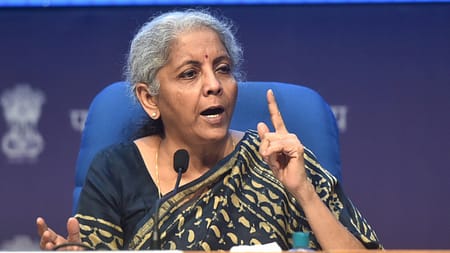India’s tourism strategy is rooted in the ancient Sanskrit verse ‘Atithi Devo Bhavah,’ translating to ‘Guest is God.’ During the interim budget presentation, Finance Minister Nirmala Sitharaman emphasized the encouragement for states to comprehensively develop iconic tourist centers, focusing on branding and global marketing.
In her optimistic outlook for spiritual tourism, the Finance Minister highlighted the recent surge in tourist influx to emerging destinations like Ayodhya, particularly after the inauguration of the Ram Temple shortly before the interim budget announcement. Recognizing India’s economic strength, she noted the country’s attractiveness for business and conference tourism, with the expanding middle class expressing a growing desire to explore.
The interim budget proposed significant enhancements in infrastructure and connectivity to boost domestic tourism, specifically targeting islands like Lakshadweep. The Finance Minister outlined plans to promote both spiritual tourism and iconic tourist spots, offering states long-term interest-free loans for the development of world-class facilities.
Highlighting the rapid growth of yoga tourism as the largest service industry globally, the Finance Minister underlined its significance in promoting well-being and unity. The International Day of Yoga, initiated by Prime Minister Narendra Modi, further strengthens India’s position as a hub for holistic health and consciousness.
To further support tourism, 517 flying routes were announced, focusing on promoting Lakshadweep as a primary tourist destination. The government’s emphasis on tourism is expected to spur development in smaller cities and towns across India.
States like Uttarakhand, or “Dev Bhoomi,” have initiated missions to develop religious places, such as the “Manaskhand Mandir Mala Mission” in the Kumaon region. Similarly, Uttar Pradesh is witnessing a surge in spiritual tourism and pilgrimage.
A recent report by SBI Ecowrap highlighted Uttar Pradesh’s success in attracting tourists, projecting a substantial increase in tourist expenditure, particularly after the completion of the Ram Mandir in Ayodhya. The state’s initiatives and the completion of projects like the Kashi Vishwanath Corridor contribute to the significant rise in tourist footfalls.
The budget’s allocation for improving transportation infrastructure, including airports, railways, and roads, aims to enhance accessibility for tourists. Slogans like “Dekho Apna Desh & Wed In India” showcase the government’s efforts to encourage travelers to explore every corner of the country.
The G20 summit’s motto, “Vasudhaiva Kutumbakam – One Earth, One Family, One Future,” reflects India’s inclusive outlook and philosophy during its presidency. In conclusion, the statement “Terrorism divides, tourism unites” underscores the transformative power of tourism in fostering global unity.









